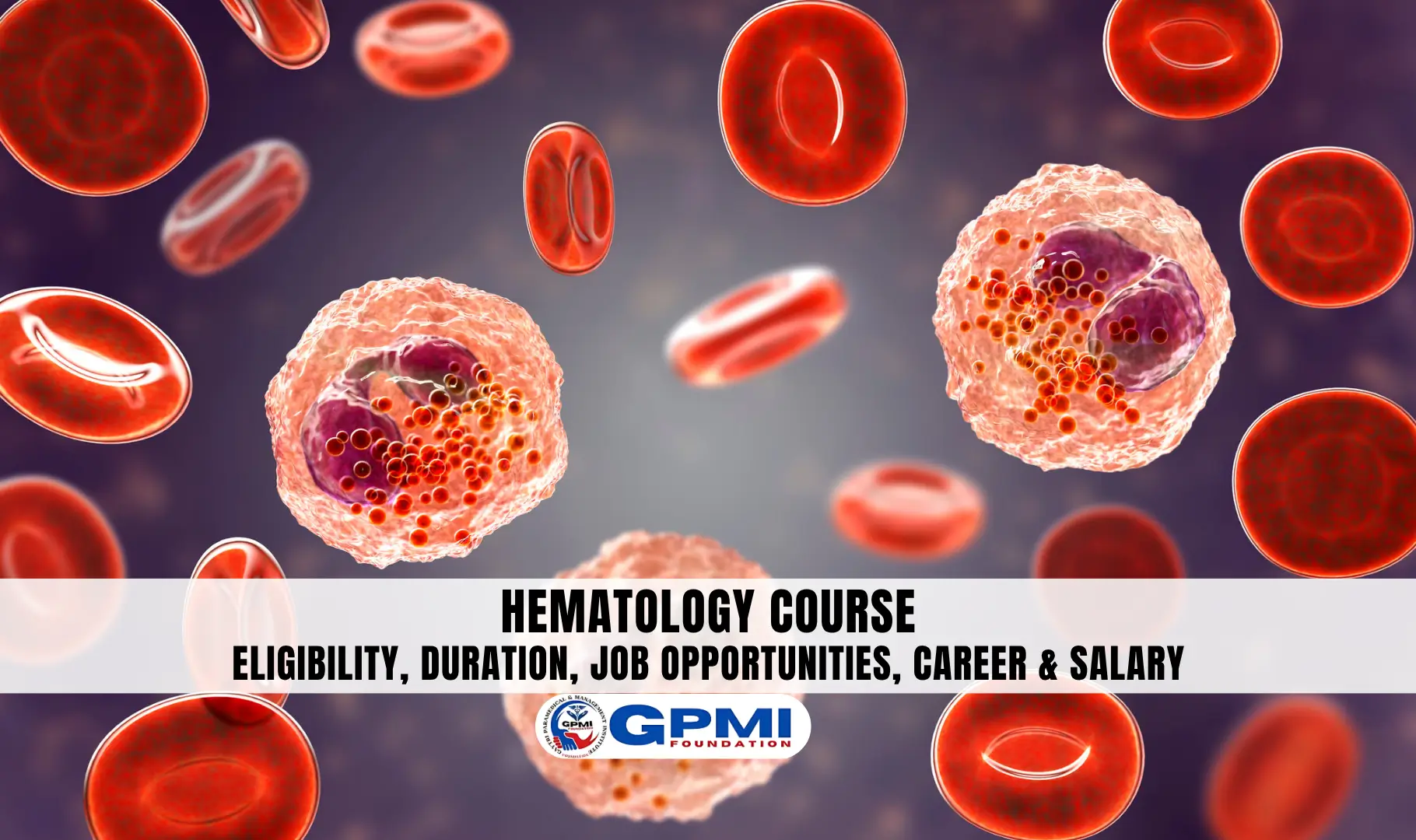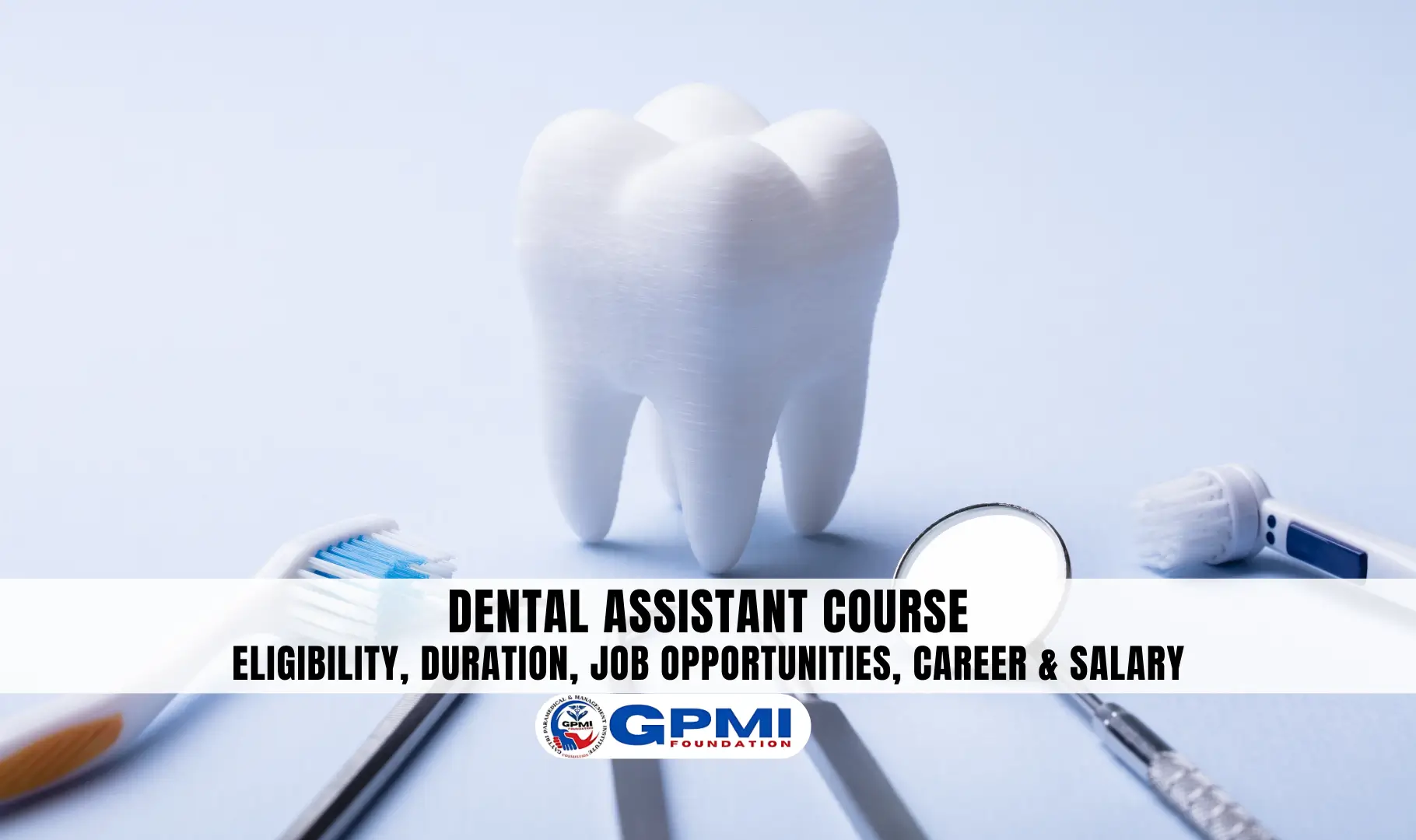Are you thinking about a smart and secure career in the healthcare field? If yes, then a D Pharmacy course might be the right path for you! A Diploma in Pharmacy is not just a quick way to enter the medical profession, it’s also a doorway to becoming a licensed pharmacist.
He is someone who plays a key role in patient care, medicine safety, and health advice. In today’s world, the need for skilled pharmacists is growing fast. Hospitals, clinics, chemist shops, and even online pharmacies are always looking for qualified professionals.
This article will give you 6 honest reasons why becoming a licensed pharmacist after D Pharmacy is a great decision. Whether you’re still in school or just finished your 12th with science, this course can give you the skills, respect, and income you deserve. So, let’s explore what makes the D Pharmacy course such a smart choice for your future.
Table of Contents
What is D Pharmacy Course?
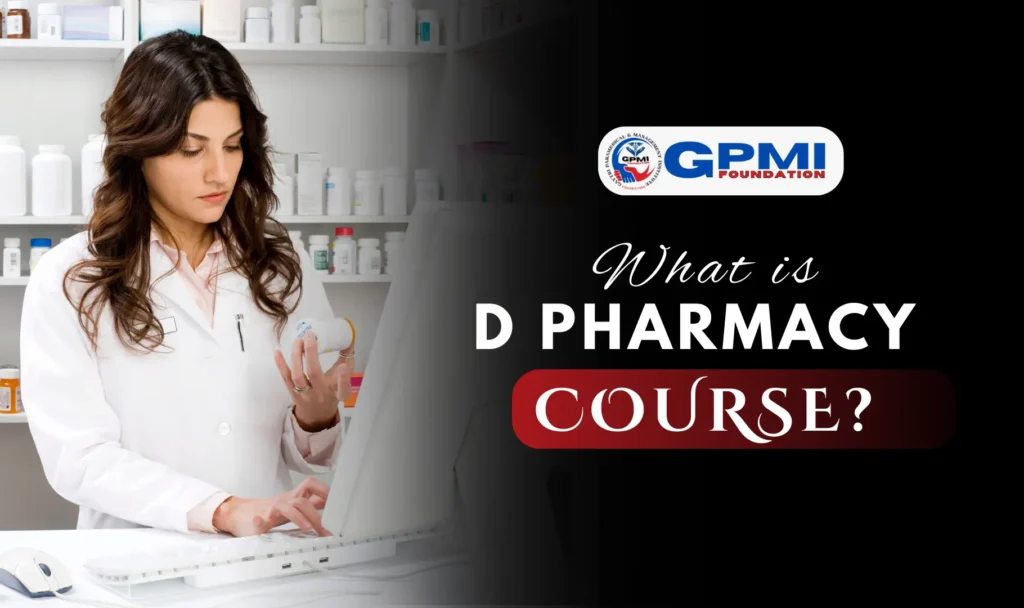
If you are searching for a career in the medical field that starts right after school, learning about D Pharmacy course after 12th can open exciting opportunities.
This program teaches students the basics of medicines, how drugs work, and how to safely give them to patients. It’s one of the most popular choices for students who want to become a pharmacist.
This pharmacist course after 12th is designed for 12th pass out students to prepare them for real-world Pharmacist Job. After completing the course, students can work in hospitals, clinics, or open their own medical shop. The course covers important topics like human anatomy, pharmacology, drug store management, and hospital pharmacy.
The role of a pharmacist is very important in the medical field. Pharmacists guide patients on how to take medicines properly, check prescriptions, and ensure safety. In short, they help people get better and live healthier lives.
D Pharmacy Course Details After 12th
This section is for students who want to know the complete course details after 12th. We’ll walk you through the basic details of what this course is all about. Let’s explore the pharmacist course details…
D Pharmacy Course Duration & Qualification
- Pharmacist Course Duration: The D Pharmacy course duration after 12th is 2 years, plus a 3-month internship. This is short yet powerful course, giving you the skills to start working quickly.
- Pharmacist Course Qualification: Pharmacist course eligibility to apply for a D Pharmacy course is that you must have passed 12th with science (Physics, Chemistry, and Biology or Math) from recognized boards. This is the basic D Pharmacy course eligibility needed to get started, although some institution may require to clear specific entrance exam for admission.
- D Pharmacy Entrance Exams: MHT CET (Maharashtra), WBJEE Pharmacy (West Bengal), JEECUP (Uttar Pradesh), CG PPHT (Chhattisgarh), TS POLYCET (Telangana), AP POLYCET (Andhra Pradesh)
D Pharmacy Course Fees
- D Pharmacy course fees in government colleges are quite affordable, usually ranging from ₹10,000 to ₹50,000 per year. These pharmacist course fees make it budget-friendly for students.
- The D Pharmacy course fees in private colleges are higher than government institutes, usually ranging between ₹70,000 to ₹1,50,000 per year, depending on the college facilities and location.
D Pharmacy Course Syllabus
The D Pharmacy Course Subjects includes a mix of theory and practical subjects designed to build a strong foundation in pharmaceutical science.
- First Year Course Subjects: Students learn about Pharmaceutics, Pharmaceutical Chemistry, Human Anatomy & Physiology, Biochemistry, and Health Education.
- Second Year Course Subjects: It covers Pharmacology, Hospital and Clinical Pharmacy, Drug Store and Business Management, and Pharmaceutical Jurisprudence.
These subjects help students understand how medicines work, how to prepare and dispense them, and how to manage a pharmacy. Practical labs are a key part of the course to build hands-on skills.
D Pharmacy Course Salary
The average pharmacist course salary in India depending on the city and type of job. Those working in government hospitals or large private chains may earn more with experience.
Fresher (0–1 year experience)
- Monthly Pharmacist Salary: ₹10,000 – ₹20,000
- Job Roles: Trainee Pharmacist, Hospital Assistant, Medical Store Helper
- Pharmacist Vacancy Places: Local pharmacies, clinics, small hospitals
Mid-Level (2–4 years experience)
- Monthly Salary: ₹20,000 – ₹35,000
- Job Roles: Registered Pharmacist, Hospital Pharmacist, Store Manager
- Pharmacist Vacancy Places: Private hospitals, large pharmacies, pharma companies
Experienced (5+ years experience)
- Monthly Salary: ₹35,000 – ₹60,000+
- Job Roles: Senior Pharmacist, Pharmacy Business Owner, Wholesale Drug Supplier
- Pharmacist Vacancy Settings: Government hospitals, self-owned stores, senior roles in companies
Pharmacist with Own Medical Shop
- Income Range: ₹50,000 – ₹1,00,000+ per month (varies with location and sales)
- High earning potential with experience and good location
This salary growth shows that D Pharmacy course offers strong long-term career value and income stability.
Different Types of Pharmacist Courses
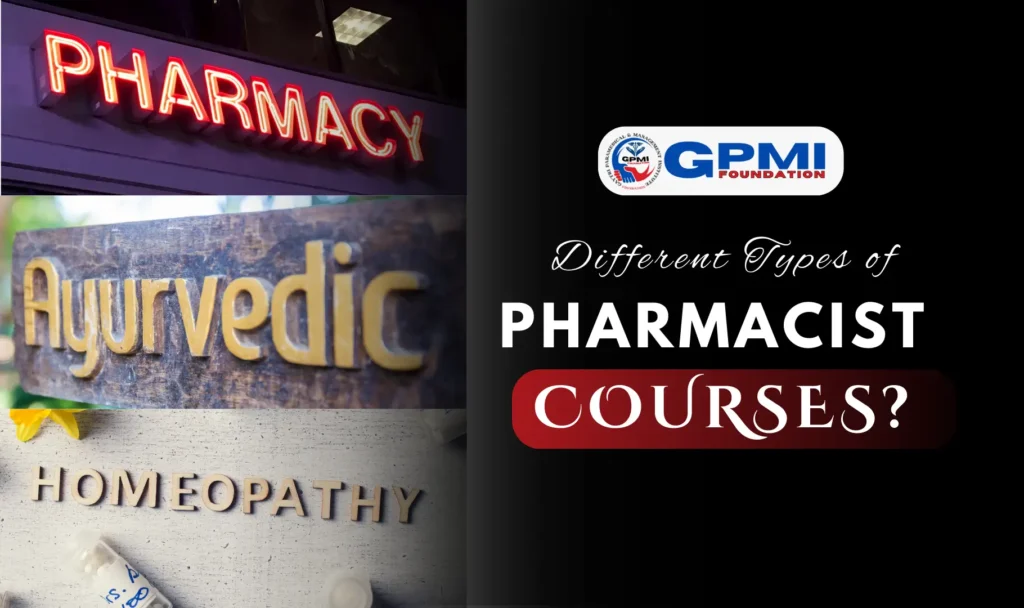
Pharmacy is a vast and growing field with many career paths. Depending on your interest, time, and career goals. You can choose an online pharmacist course (Virtual Classroom: Great for working professionals or those who prefer flexible learning) or an offline pharmacist course (Traditional Classroom Method: You attend regular classes, practical labs, and exams.)
You can choose from different types of pharmacist courses Some are general and suitable for everyone, while others are more specialized. Here are the most common types…
Clinical Pharmacist Course
A Clinical Pharmacist Course prepares students to work closely with doctors and patients in hospitals and healthcare settings. This course focuses on patient care, medication management, and drug safety.
Clinical pharmacists are trained to review prescriptions, suggest alternatives, and monitor drug interactions. It’s a vital role that ensures patients receive the right medicines in the correct dose. This course is ideal for those who want to play a direct part in patient treatment and recovery.
Ayurvedic Pharmacist Course
An ayurveda Pharmacist Course is designed for students who wish to build a career in traditional Indian medicine. This course teaches how to prepare, handle, and dispense herbal and natural medicines based on Ayurvedic principles.
Students learn about medicinal plants, formulations, and basic human anatomy. After completing the course, they can work in Ayurvedic hospitals, pharmacies, or even start their own practice. It’s a great option for those interested in natural and holistic healing methods.
Homeopathic Pharmacist Course
The Homeopathy Pharmacist Course is ideal for students interested in natural and alternative medicine. This course trains you to prepare, store, and dispense homeopathic remedies safely and accurately.
A homeo pharmacist course includes subjects like homeopathic pharmacy, materia medica, and pharmacy laws. After completing it, students can work in homeopathic hospitals, retail medical stores, or with licensed homeopathic doctors. It’s a rewarding path for those who believe in gentle, holistic healing through natural medicines.
Veterinary Pharmacist Course
The Veterinary Pharmacist Course is designed for students who wish to work in the field of animal healthcare. This course focuses on the study, preparation, and safe dispensing of medicines used for animals like pets, livestock, and farm animals.
Students learn about animal anatomy, veterinary pharmacology, and drug dosage specific to different species. After completing the course, one can work in veterinary hospitals, pet clinics, animal research centers, or with pharmaceutical companies that produce veterinary drugs.
World Pharmacist Day
Every year on September 25th, we celebrate World Pharmacist Day to recognize the vital role pharmacists play in the healthcare system. It’s a day to honor their hard work, dedication, and the life-saving support they provide to patients and doctors alike. Pharmacists are not just medicine dispensers—they are medication experts, patient counselors, and important members of every healthcare team.
Whether working in hospitals, retail shops, research labs, or even behind the scenes in pharmaceutical companies, pharmacists ensure that the right medicine reaches the right patient at the right time. This day is a reminder of how important their work is in keeping communities healthy and safe.
As you explore different pharmacy career options or begin your journey through a pharmacist course, take a moment to appreciate those already serving in the field. So, whether you’re a student or a professional, don’t forget to say “Happy Pharmacist Day” and celebrate the impact of this noble profession.
What Is RRB Pharmacist?

The RRB Pharmacist is a government job position under the Railway Recruitment Board (RRB). Indian Railways regularly conducts exams to hire qualified pharmacists to work in railway hospitals and healthcare centers across the country. This job is highly respected and offers good salary, job security, and government benefits.
To apply for the RRB Pharmacist post, you need a Diploma in Pharmacy (D.Pharm) or Bachelor in Pharmacy (B.Pharm) from a recognized institution. You must also be a registered pharmacist with the State Pharmacy Council. The selection is done through a written exam followed by document verification.
The role of an RRB Pharmacist includes dispensing medicines, maintaining drug inventory, and helping doctors manage patient prescriptions. It’s a stable job with fixed working hours, making it a great option for those who want a long-term career in the government healthcare sector.
If you’re preparing for a pharmacist career, the RRB Pharmacist exam is definitely worth aiming for.
RRB Pharmacist Syllabus
The exam is a Computer-Based Test (CBT) with 100 multiple-choice questions to be answered in 90 minutes (Testbook). There are four sections:
1. Professional Knowledge (70 marks): This major section tests in-depth pharmacy knowledge, covering:
- Human Anatomy & Physiology, Pharmaceutics, Pharmacology
- Pharmaceutical Chemistry (Organic & Inorganic), Biochemistry
- Pharmacognosy & Herbal Drug Technology, Pharmaceutical Analysis
- Pathophysiology, Pharmaceutical Jurisprudence
- Pharmaceutical Microbiology, Biotechnology, Quality Assurance
- Drug Delivery Systems, Pharmacovigilance, and more (Testbook, PW Live, Toppers Exam, Toppers Exam)
2. General Awareness (10 marks): Short but important, this section includes:
- Current Affairs, Indian geography, history and culture
- Polity, economy, environmental issues, scientific and technological updates, and sports (railway vacancy rrb jobs notifications, PW Live)
3. General Arithmetic, Intelligence & Reasoning (10 marks): Tests for basic math and logic up to 12th class level, including:
- Number systems, percentages, ratio & proportion
- Time & work, profit & loss, time & distance
- Coding-decoding, analogies, series, syllogisms, data interpretation, and analytical reasoning (Toppers Exam, Testbook, railway vacancy rrb jobs notifications)
4. General Science (10 marks): Basic science knowledge based on 10th-grade CBSE curriculum, covering:
- Physics, Chemistry, Life Sciences (Biology) subjects
6 Reason to be licensed Pharmacist
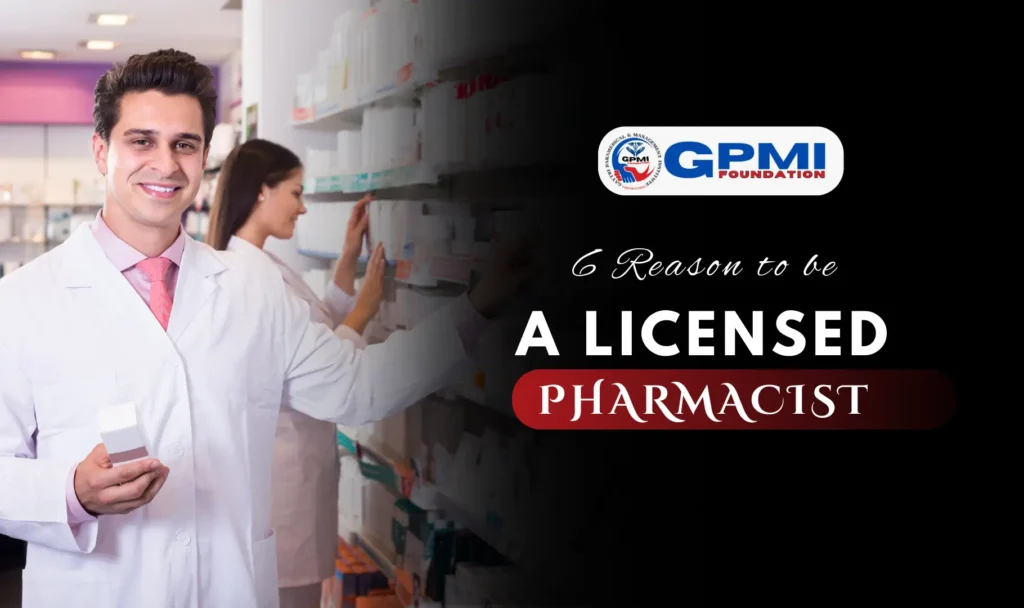
Choosing a career after 12th can feel confusing. There are so many options—but if you’ve studied science (especially PCB or PCM), and want a respected, stable, and meaningful job, becoming a licensed pharmacist is one of the smartest choices you can make.
Here are 6 honest reasons why a career in pharmacy might be the right path for you.
1. You Can Join Healthcare Without Being Doctor
Let’s be honest—not everyone wants to go through years of NEET preparation, face intense competition, or pay high college fees. Becoming a doctor is a great dream, but it’s not the only way to enter the medical field. If you want to work in healthcare and help people, pharmacy is a smart and practical option.
By doing a D Pharmacy course after 12th, you can start your career in just 2 years. You don’t need to clear NEET, and the course fees are much more affordable compared to MBBS. After completing the course and a short internship, you can work in:
- Hospitals and clinics
- Retail and government pharmacies
- Diagnostic labs and pharma companies
- You can open your own medical store
You’ll still wear the white coat. You’ll still be part of a patient’s healing journey. And if you love biology, chemistry, and caring for others—this path gives you a meaningful, stable, and respected career in healthcare without the long road of becoming a doctor.
2. Job Security and a Stable Income
In today’s world, pharmacists are always in demand. Whether it’s a private hospital, a government clinic, a medical shop, or even a pharmaceutical company, there’s always work for trained and licensed pharmacists. And the best part? You don’t need to wait for years to start earning.
After completing your D Pharmacy Course or B.Pharm, you can find a job quickly. A fresher usually earns around ₹10,000 to ₹25,000 per month, and with just a few years of experience, that can go up to ₹40,000 or even more.
Opportunities available in hospitals, clinics, and pharma companies. Government jobs like RRB Pharmacist offer job security, fixed working hours, and pension benefits. It gives you peace of mind while letting you help others.
3. You Can Start Your Own Medical Shop
This is one of the best things about becoming a licensed pharmacist. After completing your D Pharmacy Course or B.Pharm, your name will be registered with the State Pharmacy Council, and you can legally open your own medical store.
This means you don’t have to wait for someone to hire you. You can start your own pharmacy business, either alone or in partnership with a doctor or hospital.
In cities or near clinics, medical shops earn well, and if managed properly, you can even earn ₹50,000 to ₹1 lakh or more per month. You also help the community by giving access to life-saving medicines.
4. Multiple Career Paths, Not Just One
When people think of pharmacy, they only imagine someone standing behind a counter selling medicine. But the truth is, a licensed pharmacist can work in many different areas:
- Hospital Pharmacist
- Retail Medical Store Manager
- Clinical Pharmacist (working with doctors)
- Pharmaceutical Company Employee
- Medical Representative
- Drug Inspector (with more study)
- Research Assistant
- Teacher in Paramedical Colleges
Also, there are many special courses like Ayurvedic Pharmacist, Veterinary Pharmacist, and Homeopathy Pharmacist to upgrade your skills. This means you’re not stuck in just one type of job. You can grow in different directions, depending on your interest.
5. Short Duration with Early Job Opportunities
If you want to earn early and become independent quickly, the D Pharmacy course is perfect choice. It is just 2 years long, followed by a 3-month internship.
Compared to degrees like MBBS or BDS which take 5+ years, this is a short and sweet journey. After D.Pharm, you can either start working or go for B Pharmacy Course and grow further.
Even in government hospitals, private clinics, and health centers, diploma holder pharmacists are hired regularly. So, if you’re looking for a shorter study time with quicker job placement, this is a strong reason to choose pharmacy.
6. A Respected and Helpful Profession
Let’s be honest, every neighborhood has a medical shop that people trust. Whether it’s a small fever, a headache, or a serious illness, many people first go to their local pharmacist before seeing a doctor. That’s how important pharmacists are in our daily lives.
As a pharmacist, you do more than just give out medicine. You help people understand how to take it safely, talk about side effects, and sometimes even stop mistakes in prescriptions. People start to trust you and rely on your advice.
You become a helpful and respected part of your community. In times like emergencies or pandemics, pharmacists are real heroes. They continue to work, help patients, and save lives—often quietly but with great impact.
Conclusion
Choosing the D Pharmacy course after 12th is more than just picking a job—it’s choosing a stable, respected, and meaningful career in healthcare. You don’t need to become a doctor to wear the white coat or make a difference in people’s lives. With just 2 years of study, you can become a licensed pharmacist, start earning early, and even open your own medical shop.
From working in hospitals, clinics, or government setups to becoming a trusted name in your community, pharmacists have many opportunities. The job offers security, growth, financial stability, and above all, the chance to help others every single day.
If you enjoy biology, chemistry, and want to be part of the healthcare system without the long and stressful path of MBBS—D Pharmacy is a smart, honest, and rewarding choice for your future.



